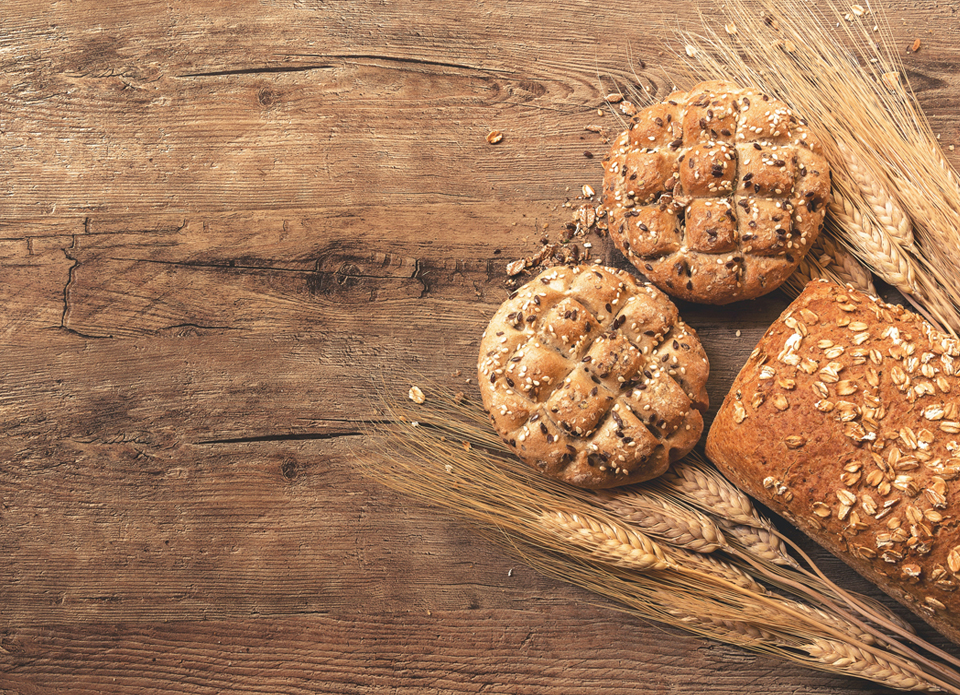Conhece a Importância da Fibra na Alimentação ?
24 Nov 2025

In recent years, gluten has become a real villain. Because of this fame, much has been said about gluten intolerance and gluten free diet. But is it really necessary to completely eliminate gluten from food?
It is increasingly common to find people who, as a precaution, have decided on their own to eliminate it from the diet. It turns out that gluten when removed unnecessarily, can also cause health problems. Therefore, before making this decision, it is very important to look for more information and also the advice of a trained professional.
Gluten is a protein found in grains such as wheat, rye and barley. Consequently, it is present in many foods that we consume on a daily basis, such as breads, pasta, cakes, cookies, ice cream and beer. Gluten is formed by two groups of proteins: glutenin and gliadin, located inside the grains. And it is this substance that is responsible for the elasticity of the masses. When being worked, networks of gluten are created capable of trapping carbon dioxide causing the mass to increase its volume. It's the warm and fluffy bread coming out of the oven!
Gluten is only harmful to the health of people who are allergic to wheat or have some kind of sensitivity or intolerance to this protein. For this group of people, gluten can actually be toxic because it causes chronic inflammation in the small intestine lining.
Products containing gluten should not be consumed by people with celiac disease. This disease is a disorder in which the body produces an immune reaction to that protein. Simply put, we can say that celiac disease is an allergy to gluten.
This disease leads to inflammation of the intestinal mucosa or, in extreme cases, to atrophy of the intestinal villi. These villi are responsible for absorbing nutrients from food. The most common symptoms are diarrhea, bloating, pain, swelling and anemia.
In addition to celiac patients, there are also people who have a Sensitivity to Non Celiac Gluten, or also known as SGNC. In this type of sensitivity, there is no immunological component, that is, there is no destruction of the intestinal mucosa. What happens in this case are common gastrointestinal disorders, as well as headaches, muscle and joint pain. These symptoms can occur up to 24 hours after eating gluten-free foods.
There are also people who are allergic to wheat. It is a food allergy and the symptoms are hives, redness of the skin, itching, swelling of the face or tongue, vomiting and diarrhea. These symptoms appear up to two hours after the consumption of the food. This allergy should not be confused with celiac disease or SGNC.
We should not eliminate gluten from the diet without consulting a doctor. By doing this without specialized monitoring, we can cause serious disorders in the body, caused by the deficiency of crucial elements, such as folic acid, vitamins, zinc, selenium, calcium and magnesium, which are present in the grains.
Those who have celiac disease, SGNC or allergy to wheat must change their eating habits, eliminating products with gluten. Instead, you should adopt a diet based on foods naturally without this protein such as corn, rice, buckwheat, spelled, amaranth, quinoa or legume seeds (soybeans, lentils, chickpeas).
Oats are another great option to be included in the diet. Rich in fiber and a source of healthy proteins and fats, it is ideal for making crepes, pancakes, smoothies and overnight oats, among others. You just need to be careful to look for an oat like Instant Oat, which does not contain gluten.
Oats, of course, do not have gluten, but you can get it due to cross contamination. For the sake of your health, always look for products you can trust.
Now that you know more about the advantages and disadvantages of gluten, share this article with your friends so that they too will be well informed.
Delivered the next business day if made before 4pm
We accept returns up to 30 days from the delivery date
We are available to answer all your questions